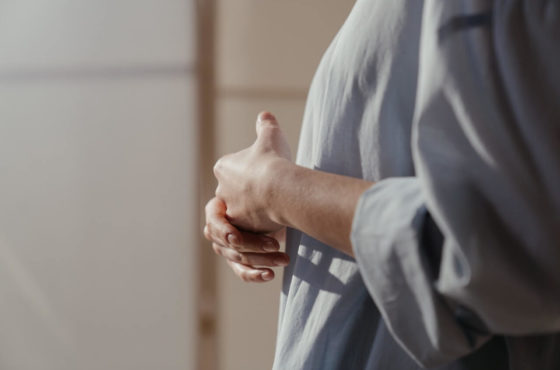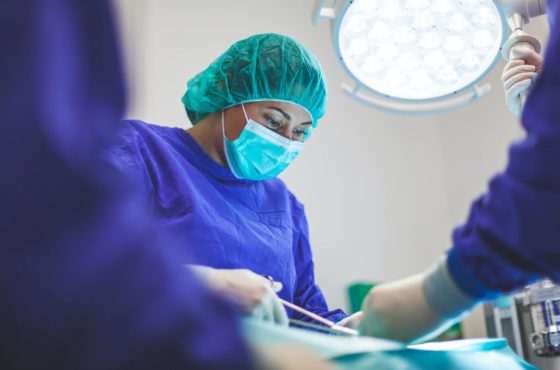Pain is one of the most common complications after hernia repair using mesh, a medical device that supports damaged or weakened tissue around hernias as it heals.
In fact, chronic postoperative pain is also considered pretty common following a hernia repair surgery, and in most cases, it should subside on its own.
However, in some cases, some patients suffer from mesh pain that ends up interfering with their daily lives and eventually affects their quality of life.
Read on to find out why patients experience chronic postoperative pain, what are its symptoms, and possible treatments available for it.
What Is Chronic Pain After Hernia Repair?
Although known to be a common problem, chronic pain is known to be more common after inguinal hernia repair.
An inguinal hernia repair is done to fix an inguinal hernia. This type of hernia, also known as groin hernia, occurs when a tissue, such as a part of the intestine, protrudes through a weak spot in the abdominal wall.
Inguinal hernia repair is also a common procedure in the United States. In fact, it accounts for around 800,000 surgeries performed in the country each year.
However, because of the large figures of groin hernia repairs, the increasing number of patients that experience debilitating pain is also becoming an alarming problem.
Technically, chronic pain is defined as pain that is experienced three months after surgery. However, the use of surgical mesh can cause an inflammatory response due to your immune system recognizing it as a foreign object and attacking it. This response can cause pain for three to six months after hernia surgery.
These exact medical concerns are reported by plaintiffs who have filed hernia mesh lawsuits. According to patients who had a hernia repair using the mesh implant, they have experienced numerous side effects and injuries following the operation, ranging from headaches, to fever, groin pain, abdominal pain, hernia recurrence, and even mesh adhesion, which is the formation of scar tissue around the medical device and fuses it with other internal tissue or organs.
Many of these hernia mesh complications, according to plaintiffs, are due to the mesh implants having defective designs, which led them to suffer from serious injuries.
A persistent postoperative pain after an inguinal herniorrhaphy can also result in neuropathic pain, also known as post-herniorrhaphy neuralgia.
Neuropathic pain is a nerve-related pain that stays for more than three months. In a number of cases, the pain can be so severe that a patient might find it difficult to perform simple tasks such as walking or sitting.
Neuropathic pain occurs when the inguinal nerve become stuck or damaged sutures, staples, or surgical mesh.
What Causes Chronic Pain After Hernia Surgery?
According to a number of research, cases of chronic post surgical pain after a groin hernia repair range from 11 percent to 54 percent.
A groin hernia surgery can be done in two ways: either through open surgery, wherein an incision is made by the surgeon in your abdomen. Another way is through a laparoscopic surgery, where the surgeon inserts a tiny device through the small incisions he made in your body.
No matter what kind of surgery you may have gone through, your surgeon most likely used surgical mesh to reinforce your weakened abdominal wall.
The two main causes of chronic groin pain after an inguinal hernia surgery are the following:
- The body’s response to the mesh used in hernia repair – Surgical mesh is the source of chronic pain among patients in most cases. The immune system may recognize the mesh as a foreign object and attack it, causing irritation and inflammation resulting in pain.
- Nerve injury – The three major nerves that run through the inguinal canal are highly exposed to injury during open inguinal hernia repair. These nerves include the ilioinguinal nerve, iliohypogastric, genitofemoral nerve, and lateral femoral nerve.
Symptoms of Nerve Pain After Inguinal Hernia Repair
Symptoms of neuropathic pain may vary from person to person and may also depend on the site of surgery, the type of surgery, type of surgical mesh used, and even any preoperative pain a patient may have had.
Here are the most common symptoms of post-inguinal hernia repair nerve entrapment or damage:
- Burning, shooting, or radiating pain
- Pain when walking or sitting
- Burning sensation around surgery site
- Testicle pain
- Pain during sex
- Tugging or pulling sensation when moving
- Feeling as if there’s something strange in your body
If chronic post operative pain gets in the way of your daily routine and remains a severe pain even after six months, then you may be suffering from chronic hernia pain.
Patients who experience these symptoms for longer than three months should talk to their hernia surgeon about different options for treatment.
How Long Does Groin Pain Last After Inguinal Hernia Repair?
Inflammation from an inguinal hernia surgery is considered normal and may take anywhere between three to six months to subside. In some cases, however, patients end up with chronic groin pain which may last for several months to several years after the procedure.
How Do You Treat Chronic Pain After Inguinal Hernia Surgery?
Treatment options available for treating chronic inguinal pain range from over-the-counter oral medications to surgery.
In most cases, chronic pain is treated with nonsteroidal anti-inflammatory drugs (NSAIDS) like ibuprofen or naproxen.However, if the pain doesn’t go away after a few months, the doctor may try stronger medications such as prescription opioid medications.
Another option is a minimally invasive procedure called nerve blocks. It uses anesthetic injection to temporarily turn off a pain signal.
If medications and noninvasive procedures do not work, the last resort would be surgical treatment. Depending on the site or cause of the pain, a surgeon may recommend mesh removal or a neurectomy, which is a surgical removal of all or part of a nerve, or both.
What You Can Do
Chronic post operative pain may be rare, but it can still happen. And once it happens, it can greatly affect your everyday routine and your quality of life.
But you do not have to live with persistent pain every day of your life. Aside from getting for a second opinion and possibly talk to a doctor who can provide you with the right solution to completely relieve you from the chronic pain you are suffering from, another option is to file a hernia mesh lawsuit.
In some cases, filing a surgical mesh lawsuit may be the only way to seek justice against those who harmed you or a loved one. Furthermore, it may also save other patients from potential complications and injuries in the future.



